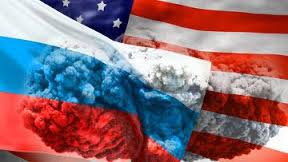U.S. senators reached an agreement on Monday on legislation imposing new sanctions on Russia, including a provision that would prevent the White House from easing, suspending or ending sanctions without congressional approval.
The agreement, to be filed as an amendment to an Iran sanctions bill, is intended to punish Russia over issues including its alleged meddling in the 2016 U.S. election, annexation of Ukraine’s Crimea region and support for the government of Syria in that country’s six-year-long civil war.
The Iran bill is due come up for a vote as soon as this week.
Besides the provision setting up a process for Congress to review changes in sanctions, the measure would put into law sanctions previously established via presidential executive order, including some on certain Russian energy projects and debt financing in some industries.
It would impose new sanctions on Russians found to be guilty of human rights abuses, supplying weapons to Syria’s government and conduct cyber attacks on behalf of Russia’s government, among others.
The measure also would allow new sanctions on Russian mining, metals, shipping and railways.
The legislation is backed by both Republicans and Democrats, and is expected to easily pass the Senate.
It was introduced amid an intense focus in the U.S. capital on relations with Russia, and investigations by the Department of Justice and congressional committees of whether Russia sought to influence the 2016 U.S. elections to help elect Republican President Donald Trump, and whether Trump associates colluded with Moscow as it sought to influence the election.
To become law, the legislation would have to pass the House of Representatives and be signed into law by Trump. If Trump objected, some of its backers said they expected enough congressional support to override a veto.
“These additional sanctions will … send a powerful and bipartisan statement to Russia and any other country who might try to interfere in our elections that they will be punished,” Senate Democratic Leader Chuck Schumer said in a statement.
Russia has denied attempting to interfere in the U.S. election, and Trump has dismissed any talk of collusion.
The measure also authorizes “robust assistance” to strengthen democratic institutions and counter disinformation in European countries that might be targeted by what the legislation’s sponsors described as Russian aggression.
In December, the final full month of President Barack Obama’s administration, Washington sanctioned Russian businessmen and companies for Moscow’s role in Ukraine via executive order.
Ask me anything
Explore related questions





